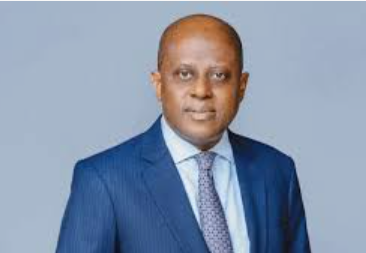
The Governor of the Central Bank of Nigeria, Olayemi Cardoso has called for more regional collaboration to strengthen financial stability and growth in the West African region.
The governor made the call at the 10th meeting of the College of Supervisors for Non-Bank Financial Institutions Abuja on Monday.
The event, hosted by the West African Monetary Institute, gathered regulators, policymakers, and financial experts from across the region to discuss critical issues facing the non-bank financial sector in West Africa.
In his address, Cardoso underscored the importance of regional collaboration in strengthening financial stability and promoting economic growth within the West African Monetary Zone.
“Now, more than ever, the need for collaboration and cooperation amongst Member States cannot be overemphasized,” he emphasised, quoting an African proverb to highlight the significance of unity in achieving common goals.
The Governor commended the efforts of the CSNBFI in advancing regulatory frameworks, notably mentioning the recent adoption of the Model Act for Non-Bank Financial Institutions and Non-Bank Financial Holding Companies across the WAMZ.
This legislative milestone, approved in March 2024, marks a pivotal step towards harmonising supervisory practices and enhancing the resilience of the financial sector.
Highlighting emerging trends, the apex bank’s governor addressed the increasing role of fintech innovations and their implications for financial stability.
“Fintech loans and digital platforms are reshaping financial intermediation,” he remarked, urging supervisors to bolster their cybersecurity frameworks and adopt risk-based supervisory approaches to mitigate associated risks.
The Governor also emphasised the College’s focus on climate risk regulation, acknowledging the sector’s vulnerability to environmental shifts and the need for tailored regulatory responses aligned with global standards.
Cardoso urged delegates to leverage the platform for knowledge exchange and collaboration, emphasizing the importance of learning from each other’s experiences in navigating the evolving financial landscape of West Africa.
Chairman of the College, Mr. Yaw Sapong, welcomed delegates and acknowledged the crucial role non-bank financial institutions play in promoting financial inclusion and economic growth.
Sapong highlighted achievements made by the College, including harmonized regulatory frameworks, automation of supervisory processes, and strengthened AML/CFT regimes.
He emphasised the need for coordinated policy responses to address current economic challenges, including inflation and currency fluctuations.
“We must continue to work together to build a resilient and inclusive financial sector that supports sustainable economic growth in our region,” Sapong urged.
The Director General of WAMI, Dr. Olorunsola Olowofeso emphasised the need for strengthened resilience in the financial sector, citing emerging risks such as climate-related risks, cyber threats, and digitization challenges.
“We must continue to monitor policy actions and spillovers to ensure the financial system is resilient,” he urged.
“WAMI remains committed to implementing the WAMZ integration agenda,” he said.
The CSNBFI meeting aims to review progress made in the NBFI sector since late 2023 and formulate strategies to address current challenges. Discussions will encompass regulatory harmonisation, cybersecurity, and the impact of digital innovations on financial services.